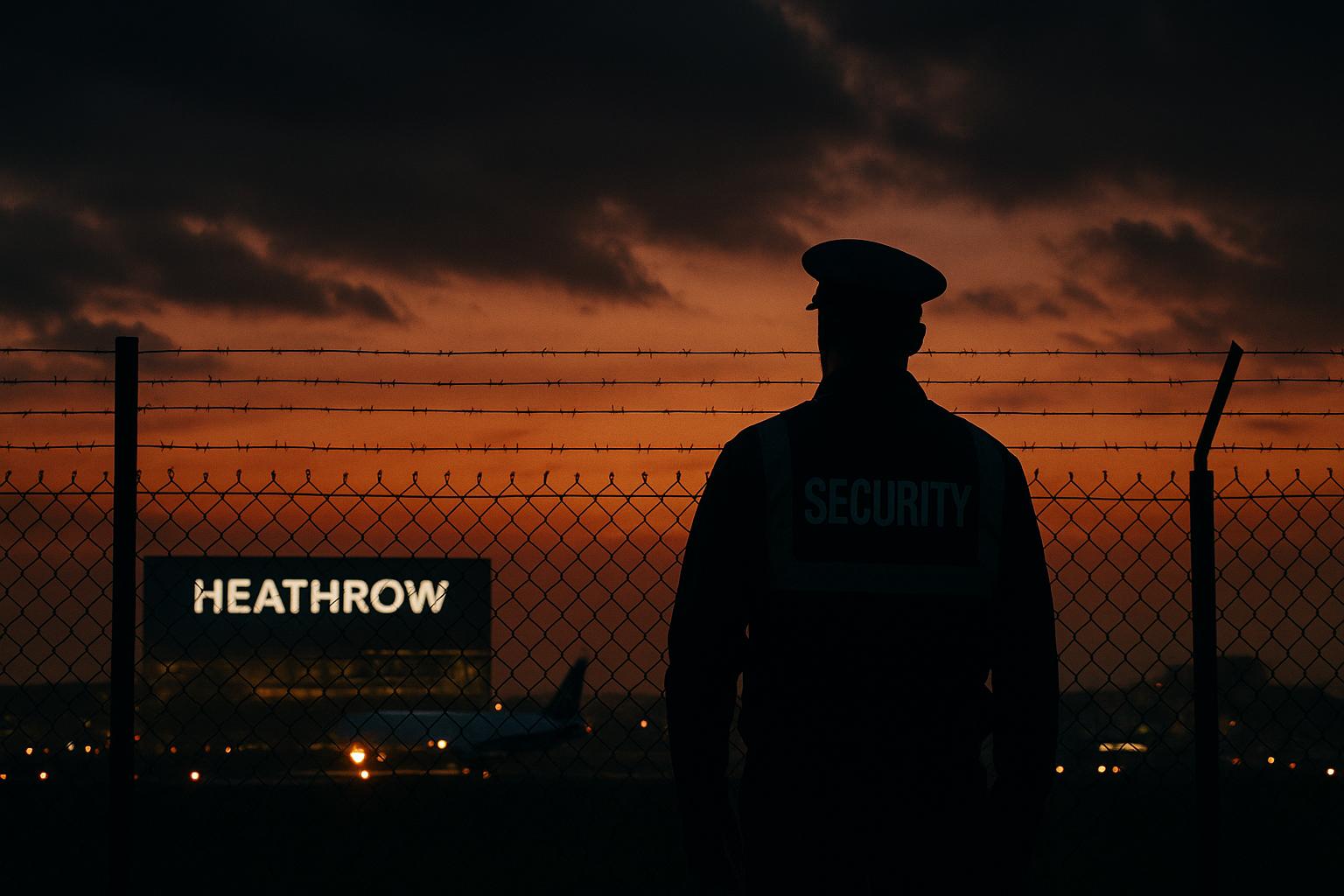The London borough of Hillingdon, known for its rich 60-year history and diverse community centred around Heathrow Airport, is grappling with a severe crisis linked to Britain's overwhelmed asylum system. This year, its mood has been darkened by the intense pressures stemming from an influx of asylum seekers and recent tragic events. The borough witnessed the fatal stabbing of Wayne Broadhurst, 49, who was attacked while walking his dog in Uxbridge by an Afghan asylum seeker, an incident that has shaken the local community and underscored escalating tensions.
Hillingdon has become one of the UK's asylum hotspots, hosting about 3,000 asylum seekers at any one time—nearly one in ten of all migrants housed in hotels nationwide. It holds the highest concentration of asylum seekers per capita of any UK local authority, at 97 per 10,000 residents. The council faces crippling financial strain, with housing costs soaring to £18 million annually, against a backdrop of £34 million in budget cuts imposed this year. These figures exclude the additional pressures of supporting hundreds of new arrivals from the Chagos Islands, who have been arriving following a controversial political deal transferring control of the islands to Mauritius after 161 years of British rule. Since July 2024, over 600 Chagossians have settled in Hillingdon, prompting the council to seek extra government funding beyond the limited 10-day support currently provided for new arrivals.
The crisis is exacerbated by Home Office policies that evict asylum seekers from hotels once they are granted leave to remain, effectively making the council responsible for their housing without corresponding funding. This gap has led to increasing numbers of former asylum seekers facing homelessness, contributing to a rise in rough sleeping and the emergence of tented encampments in public spaces. Council leaders, like Conservative leader Ian Edwards, have criticised the government for “inadequate funding” that forces residents to shoulder financial burdens, while private contractors operating asylum accommodation reportedly profit significantly. Edwards emphasises the uniqueness of Hillingdon’s status as a port authority with distinct challenges that require tailored government support.
Local residents and campaigners express a mix of fear, frustration, and exhaustion. Roy Grant, a long-time resident and anti-knife crime campaigner, highlighted the community impact, describing how the arrival of migrant hotels has altered the neighbourhood dynamics and led to tensions. He spoke of migrants wandering in groups, sometimes causing disturbances in local shops and public spaces, and residents feeling neglected as they struggle with housing shortages. These sentiments echo among other locals who recount rising crime, theft, and a perceived breakdown in community cohesion.
The strain is visible across the borough, including in West Drayton, where the Crowne Plaza hotel—once a prestigious accommodation for air travellers—now houses asylum seekers. Residents claim overwhelmed services and feel their safety and quality of life are jeopardised. Councillor Steve Tuckwell, responsible for housing, summarised the council’s untenable position, citing £5 million annually spent on former asylum seekers plus an added £2 million for supporting Chagossians, with total debts exceeding £16 million. The council has demanded that the Home Office end the practice of evicting asylum seekers without secure, funded accommodation and has pursued reimbursement for costs incurred.
The crisis has drawn political criticism as well. Local Conservative MP David Simmonds attributes the escalating costs and pressures to policies under the current Labour government, which he argues have accelerated the pace at which refugees receive housing rights locally, disproportionately impacting Hillingdon. The council, facing an estimated £17 million funding shortfall and ongoing deficits, is reportedly considering legal action against the Home Office for failing to provide adequate financial support to meet these statutory obligations.
This situation highlights a broader systemic issue within the UK’s asylum and immigration framework. While Hillingdon Council expresses pride in fulfilling its duties to offer sanctuary, it calls on the government to overhaul local government funding mechanisms, recognise the extraordinary challenges borne by port authorities, and provide fair financial support to sustain community services and ensure safety. Without such intervention, the council warns that public services will continue to deteriorate and social tensions escalate, at great cost to residents and migrants alike.
📌 Reference Map:
- [1] (Daily Mail) - Paragraphs 1, 2, 3, 4, 5, 6, 7, 8, 9, 10, 11, 12, 13
- [2] (Hillingdon Council) - Paragraph 4
- [3] (Hillingdon Council) - Paragraph 6
- [4] (Daily Sceptic) - Paragraph 6
- [5] (Local Gov) - Paragraph 6
- [6] (Evening Standard) - Paragraph 6
- [7] (Evening Standard) - Paragraph 4
Source: Noah Wire Services
